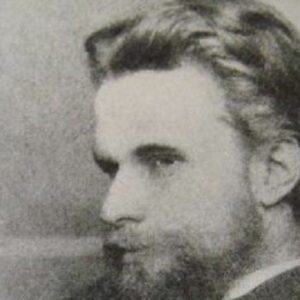Havelock, Henry Havelock Ellis was a British physician and psychologist who co-authored the first known English-language textbook on homosexuality. He primarily worked in the realm of human sexuality, coining the terms “narcissism” and “autoeroticism,” which were significant contributions to psychoanalysis. His research focused on what is now recognized as transgender issues. He was unsure about his job path as a young man, having worked on a ship and as a schoolteacher. Finally, he made the decision to study sex and become a physician. He never practiced medicine and instead focused his time on study and writing. He co-authored the first textbook on homosexuality with John Addington Symonds. At the time, homosexuality was thought to be a disease or a crime committed solely by sick and wicked minds. Ellis was one of the first sexual scholars to look at the topic objectively rather than as a taboo subject. He was a social reformer and a member of The Fabian Society, a splinter group of the Fellowship of the New Life that pushed for simple life and vegetarianism. Other socialists he knew were George Bernard Shaw and Edward Carpenter.
Childhood and Adolescence
Edward Peppen Ellis and Susannah Mary’s eldest child was him. He was one of four sisters. His father was a captain of a ship.
As a child, he attended local schools and was an avid reader. The philosopher Ernest Renan, as well as the poets Percy Bysshe Shelley and Algernon Charles Swinburne, impacted him greatly. He studied French and German at Wimbledon College.
Havelock Ellis’s Career
In 1875, he arrived in Australia aboard his father’s ship and worked as a master at a private school in Sydney. When his lack of experience was discovered, he was sacked. He supported himself as a private tutor until landing a job as a master at a grammar school.
While in Australia, he studied James Hinton’s ‘Life in Nature,’ which dealt with theological, social, and sexual issues. Ellis’ conflicted thinking was clarified after reading this book, and he underwent a spiritual metamorphosis.
In 1879, he returned to England with the intention of pursuing medical studies. He wanted to research sexual difficulties but believed he needed to first learn about human anatomy. As a medical student, he enrolled at St. Thomas’ Hospital.
He became a member of the Fellowship of the New Life, a socialist group founded by Thomas Davidson in 1883. Edith Lees, Edward Carpenter, Isabella Ford, and Frank Podmore were among the group’s other notable members.
In 1884, Ellis and other members of the group founded the Fabian Society, a socialist debate society. Quintus Fabius Maximus, a Roman general, was honored with the name.
In 1890, he released his first book, ‘The New Spirit.’ In this book, he covered anthropology, sociology, politics, feminism, and the extinction of war.
In 1896, he and John Addington Symonds co-authored the book ‘Sexual Inversion.’ Originally published in German, the novel was eventually translated into English. In this paper, the authors looked into homosexual relationships.
Because of its subject matter, the book sparked a lot of debate. The authors looked at homosexuality objectively, rather than as a criminal or disease, as was the popular belief at the time. The strict Victorian society was outraged by this.
He wrote ‘Erotic Symbolism, The Mechanism of Detumescence in 1906, in which he explored his own fetish, undinism, or urolagnia. He claimed that it must be considered a normal sexual emotion if it exists to only a minor degree.
He also investigated the principles of autoeroticism and psychoanalysis, which Sigmund Freud would later develop. He made enormous contributions to the discipline of psychoanalysis.
He was a pioneer in what is now known as transgender identity study. He was one of the first researchers to distinguish transgender identity from homosexuality and sexual inversion.
He shared the beliefs of various intellectuals of his time in the field of eugenics, which supported the study of biological and psychological qualities of breeding humans in order to improve the quality of the human population. He even served as the Eugenics Education Society’s vice-president.
His Major Projects
He co-authored the first medical textbook on homosexuality, ‘Sexual Inversion,’ with John Addington Symonds. The book featured 33 unique cases of homosexual men and women who were examined from both an academic and emotional standpoint. It was regarded as a text for psychiatric and sexuality students and historians alike.
Personal History and Legacy
In 1891, he married the writer and feminist Edith Lees. Ellis had impotence, and Lees was openly gay, therefore their marriage was out of the ordinary. Lees had affairs with various women during their open marriage.
Following the death of his wife, he began a relationship with Francoise Lafitte. He was fascinated by ‘undinism,’ the practice of getting sexual pleasure from watching women urinate.
Estimated Net worth
Unknown.


